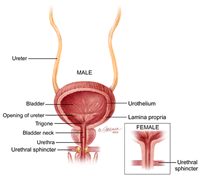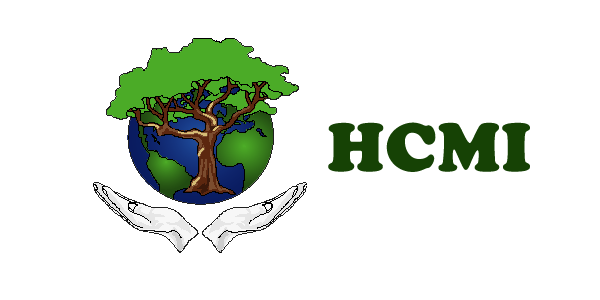Bladder Support Remedy

Urine is made in the kidneys, and travels down two tubes called ureters to the bladder. The urinary bladder is a muscular sac in the pelvis, just above and behind the pubic bone. When it is empty, the bladder is about the size and shape of a pear. The bladder stores urine, allowing urination to be infrequent and voluntary. The bladder is lined by layers of muscle tissue that stretch to accommodate urine. The desire to urinate generally begins when the bladder is about 25% full.
For the urine to exit the bladder, both the autonomically controlled internal sphincter and the voluntarily controlled external sphincter must be opened. When these muscles become weak or atrophied, incontinence can occur. During urination, the bladder muscles contract, and two sphincters (valves) open to allow urine to flow out. Urine exits the bladder into the urethra, which then carries urine out of the body. Because it passes through the penis, the urethra is longer in men (8 inches) than in women (1.5 inches).
Fun Facts
- The average human bladder will hold 13 ounces of urine.
- A full bladder is roughly the size of a soft ball.
Health Conditions
- Bed-wetting (nocturnal enuresis) is defined as a child age 5 or older who wets the bed at least one or two times a week over a period of three months or longer.
- Bladder cancer is a tumor in the bladder, usually discovered after blood is noticed in the urine.
- Cystitis is inflammation or infection of the bladder causing chronic pain or discomfort.
- Cystocele (fallen bladder) are weakened pelvic muscles (usually from childbirth) which allow the bladder to press on the vagina.
- Urethritis is inflammation of the urethra. (The urethra is the transport tube leading from the bladder to discharge urine outside the body.)
- Dysuria (painful urination) is pain or discomfort during urination due to infection or inflammation of the bladder or external genitals. Take the Cystitis remedy.
- Hematuria is blood in the urine.
- Overactive bladder is when the bladder muscle (detrusor) contracts involuntarily, causing some urine to leak out.
- Urinary incontinence is defined as involuntary urination, take the Cystitis or Cystocele remedy.
- Urinary retention is when urine doesn't exit the bladder normally due to obstruction or suppressed bladder muscle activity. The bladder may swell to hold more than a quart of urine.
- Urinary stones (calculi) may form in the kidney and travel down to the bladder. If calculi block urine flow through the bladder, they can cause severe pain.
Suggestions To Strengthen
- Eat less sugar.
- Make sure personal hygiene of genital area is maintained.
- Practice Kegel exercises.
- Uncircumcised men can have more trouble or pass it to their partner through sexual intercourse.
Irritation is the emotion of the bladder. If you get irritated easily, it is a sign of bladder weakness. Stubbornness is also associated with the bladder. Both extremes of the emotion -- being too stubborn or not stubborn enough to stand up for yourself are signs of bladder weakness. Optimum health requires a balance between the two extremes.
